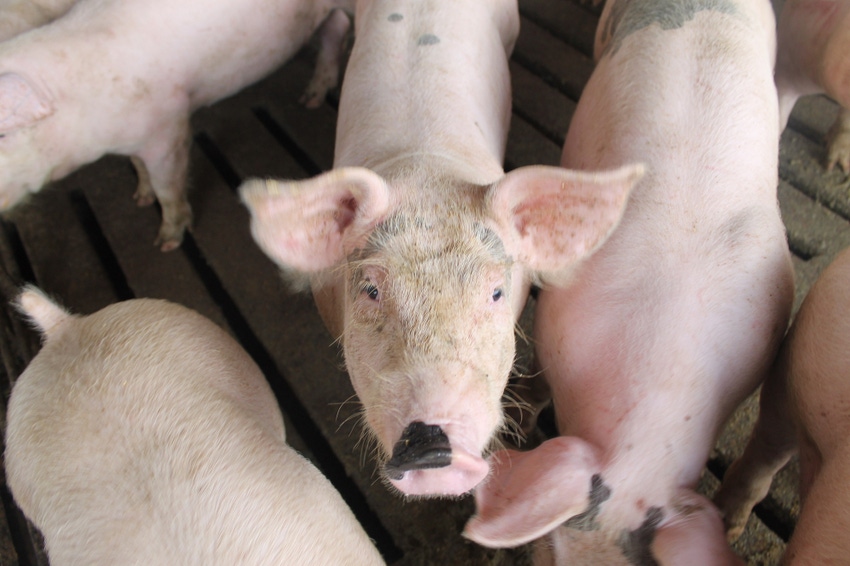- Swine Health and Nutrition
- Agribusiness News
- Nutrition & Health
- Market News
- Livestock & Poultry Market news
Pork and pork products from region currently prohibited in U.S. due to classical swine fever restrictions.

The U.S. Department of Agriculture’s (USDA) Foreign Animal Disease Diagnostic Laboratory confirmed today the discovery of African swine fever (ASF) in samples collected from pigs in the Dominican Republic through an existing cooperative surveillance program.
USDA said its Animal and Plant Health Inspection Service (APHIS) has numerous interlocking safeguards in place to prevent ASF from entering the United States. Pork and pork products from the Dominican Republic are currently prohibited entry as a result of existing classical swine fever restrictions.
Additionally, the Department of Homeland Security’s Customs and Border Protection (CBP) is increasing inspections of flights from the Dominican Republic to ensure travelers do not bring prohibited products to the United States. CBP will also be ensuring that garbage from these airplanes are properly disposed of to prevent the transmission of ASF, USDA said.
“USDA is committed to assisting the Dominican Republic in dealing with ASF, is offering continued testing support, and will consult with them on additional steps or actions to support response and mitigation measures,” the agency said. “We will also offer similar help to Haiti, which borders the Dominican Republic and is at high risk for ASF detections.”
The USDA continues to work diligently with partners including CBP and the U.S. swine industry to prevent ASF from entering the United States. ASF is not a threat to human health, cannot be transmitted from pigs to humans and it is not a food safety issue.
“The United States has significantly bolstered biosecurity to protect the U.S. swine herd since ASF broke in China nearly three years ago and began spreading to other parts of the world,” said Liz Wagstrom, chief veterinarian with the National Pork Producers Council. “We are thankful for steps taken by the USDA and U.S. Customs and Border Protection (CBP), including strengthened border inspection and the implementation of an active surveillance program designed to quickly detect and eradicate ASF. These measures are particularly important now that ASF has been detected in the Western hemisphere for the first time in approximately 40 years.”
Dr. Wagstrom added, “We thank the USDA and CBP for the additional measures they are taking to prevent the spread of ASF to the United States.”
NPPC noted the following measures for U.S. pork producers:
Use caution when hosting on-farm visitors from an ASF-positive region of the world; follow downtime recommendations from USDA's Plum Island Foreign Animal Disease Diagnostic Laboratory.
Review your biosecurity protocols to ensure consistent practice of appropriate safeguards.
Fill out the Foreign Animal Disease Preparation Checklist found here and enroll in the Secure Pork Supply program.
Visit with your feed suppliers to discuss the origin of the feed ingredients they are using in your diets.
Vacation and other travelers to the Dominican Republic should know that it is illegal to transport specialty meat products or other agriculture products from the DR to the United States.
For additional information on ASF biosecurity, please visit www.nppc.org/asf.
About the Author(s)
You May Also Like



.png?width=300&auto=webp&quality=80&disable=upscale)

